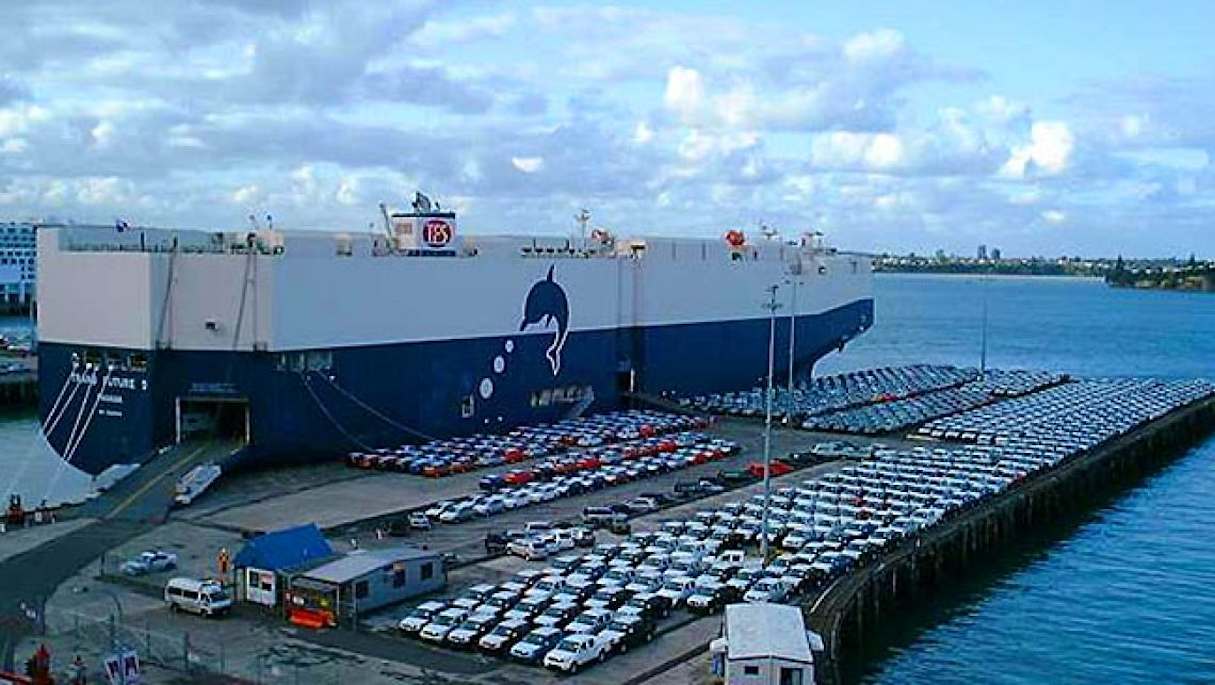If you’ve purchased a new car in the past couple of years, you’ll be well aware of the lengthy delivery delays impacting Australia’s biggest automotive brands.
Up until recently, the causes of the delays were mostly COVID-related like factory shutdowns.
Then there was the semi-conductor shortage that is still biting now, albeit not as dramatically as this time last year. Experts believe that will be well and truly behind us by mid-2024.
And of course the war in the Ukraine - where a number of key automotive parts are manufactured - was the third part of the triple whammy that hit manufacturers and, in turn, buyers.
But the latest factor impacting how long it will take before you take delivery of your shiny new set of wheels is to do with grass seeds and snails!
Because of bottlenecks in shipping that have largely been caused by COVID, some vehicle manufacturers are holding cars in fields and paddocks of their country of origin while they await the next available vessel.
And that’s causing all sorts of problems once they eventually land on Australian soil.
Anyone that’s flown to Australia from another country will know that Australia has some of the strictest biosecurity laws on earth, so any product, including vehicles, arriving by sea or air, must be cleared before leaving the port.
According to the federal Department of Agriculture, Fisheries, and Forestry, there has been an 88 per cent increase, from 2021 to 2022, of vehicles arriving with what it calls Biosecurity Risk Material (BRM) contamination.
The department says some of the materials found include “soil, plant debris, seeds and live insects which are not present in Australia”.

Specifically the department has found Siam weed, which creates impenetrable thickets in tropical fruit crops, pastures and more, exotic snails and Brown Marmorated Stink Bug.
Any vehicles found to be contaminated with any of these materials require treatment before being released, and that’s where the delays are.
Federal Chamber of Automotive Industries (FCAI) chief executive Tony Weber acknowledged the “additional stress” on vehicle deliveries at the moment, and said there was particular congestion at Port Melbourne.
“Carmakers are aware customers are impacted, which is why all participants – government, port authorities and operators and carmakers - are continuing to work together to move vehicles as quickly as possible while ensuring Australia’s biosecurity borders remain protected,” he said.
Essentially all OEMs that import cars to Australia have been affected. CarsGuide contacted a number of automotive brands to confirm if they were impacted, but they declined to comment on the record.

However, an insider from one of the major importers told us that the delay in the ships being able to offload at ports causes flow-on effects for their return trips back to their country of origin, which then delays the next shipments.
Because approval to bring the cars in after they’ve been cleaned and decontaminated comes from the Department of Agriculture, Fisheries, and Forestry, OEMs have little option but to wait in the queue until such times as they’re given the go-ahead, the source added.
Looking at the countries that are responsible for the most contaminated vehicles, China is the biggest culprit for outright volume, with 10,900 vehicles failing to pass the department’s checks.
Brands such as MG, GWM, and LDV source their models from China, as do Tesla, Volvo and Polestar.
However, when you break it down by what portion of vehicles didn’t pass, vehicles coming from Argentina fared the worst. Of the 4500 vehicles that arrived from Argentina last year, 2900 - or 64.5 per cent - failed the biosecurity check.
One of the biggest volume models sourced from Argentina is the outgoing VW Amarok. The new-gen version, arriving next month, is built in South Africa.
| Country | Arriving | Failed | % that failed |
| China | 148,200 | 10,900 | 7.4 |
| Thailand | 241,200 | 4200 | 1.7 |
| Spain | 18,000 | 3900 | 21.7 |
| Japan | 351,300 | 3700 | 1.1 |
| Argentina | 4500 | 2900 | 64.5 |





.jpg)

.jpg)
.jpg)

.jpg)


.jpg)




_0.jpg)


.jpg)
.jpg)
.jpg)
.jpg)
 (1).jpg)



